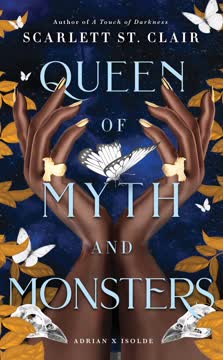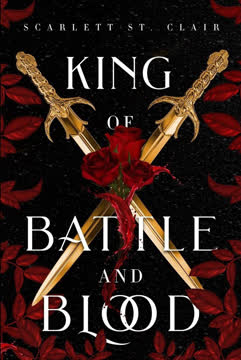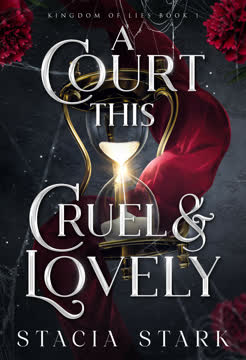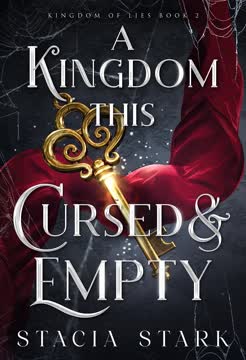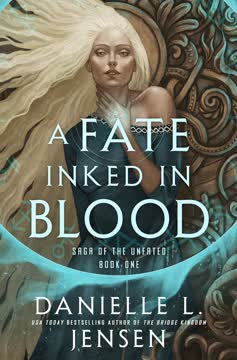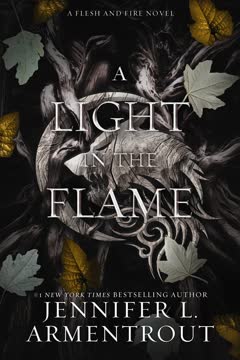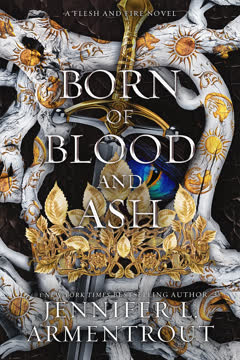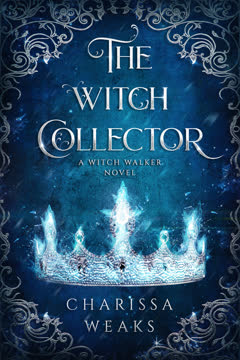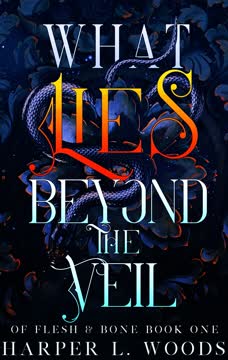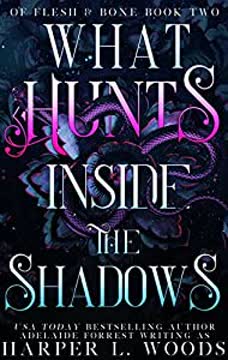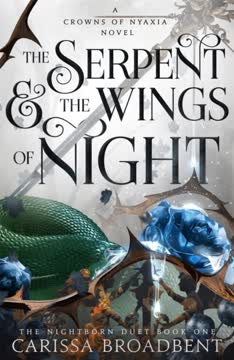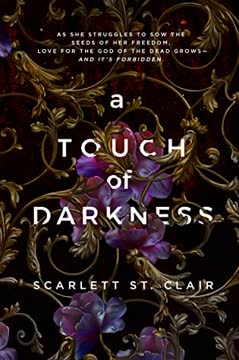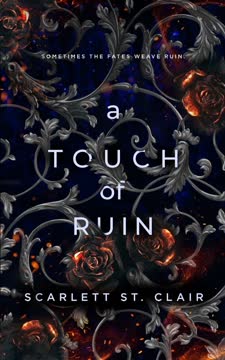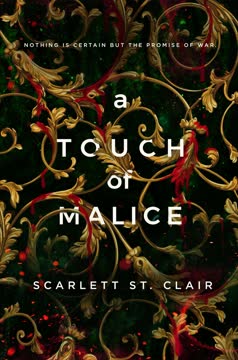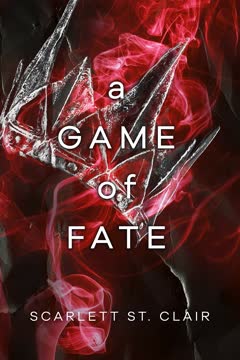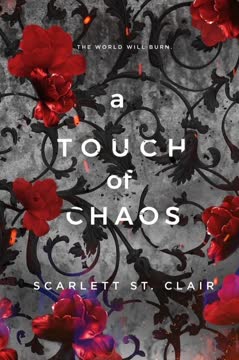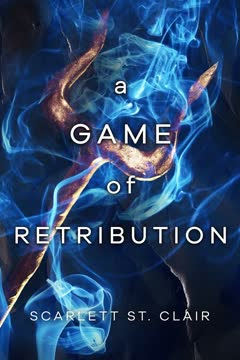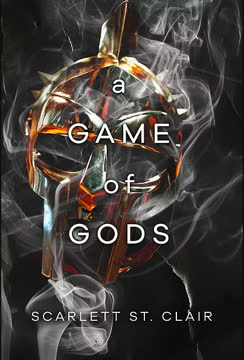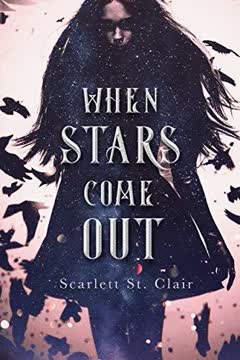Plot Summary
Aftermath of Betrayal
Isolde, Queen of Revekka, surveys the carnage left by Ravena's attack and her own father's betrayal. The Red Palace is ringed with impaled traitors, a brutal warning from her husband, King Adrian. Isolde's grief is raw, her anger sharper than ever, and her sense of self fractured by the violence she's both witnessed and enacted. She cannot sleep, haunted by the memory of killing her father and the knowledge that her power is both coveted and feared. Adrian, her lover and king, is both her anchor and her darkness, and together they navigate a court where trust is a rare and dangerous commodity. The world expects her to be weak, but Isolde is determined to prove otherwise, even as the cost of survival grows ever steeper.
Queen's Resolve Awakens
Isolde steels herself for the challenges ahead, determined to claim not just Revekka but her birthright in Lara and her mother's homeland, Vela. She is surrounded by uncertainty—her people's loyalty is fragile, her ladies-in-waiting wary, and her former lover Killian both ally and reminder of what she's lost. The wounds of her father's betrayal are fresh, but Isolde's resolve hardens. She seeks knowledge, alliances, and the means to wield power on her own terms. The ghosts of her past lives—Yesenia the witch, Isolde the queen—merge within her, forging a woman who will not be ruled by fear or by men. The path to conquest is fraught with pain, but Isolde is ready to walk it, no matter the cost.
Monsters at the Gates
The city is beset by aufhockers—monstrous, bloodthirsty hounds that tear through the streets, slaughtering indiscriminately. Isolde refuses to hide, taking up arms to defend her people despite Adrian's orders. The battle is brutal, and Isolde is wounded, her mortality starkly apparent. The attack is a harbinger of greater threats, a sign that the world is shifting and that old magics are awakening. In the aftermath, the city mourns its dead, and Isolde is left to reckon with the consequences of her defiance and the vulnerability that comes with being both queen and human in a land of monsters.
Blood and Vengeance
While Isolde fights for her people, Adrian pursues the last of his rebellious noblesse, determined to stamp out any threat to his rule. The Starless Forest echoes with the voices of murdered witches, a constant reminder of the kingdom's bloody history. Adrian's rage is unquenchable, his love for Isolde both a strength and a weakness. He is haunted by the past, by the loss of Yesenia, and by the knowledge that his power is built on violence. The capture and execution of Gesalac is both a victory and a warning: in this world, mercy is a luxury no ruler can afford.
Wounds and Weaknesses
Isolde's injuries from the aufhocker attack fester, threatening her life. Adrian's love is fierce but controlling, and his ability to heal her comes at a cost. Their bond is deepened by blood and sex, but also by the ever-present threat of death. Isolde's transformation—her first shift into a beast—marks a turning point. She is no longer merely human, but something other, something feared. The experience is both terrifying and empowering, a glimpse of the power she might wield if she can learn to control it. But with new strength comes new dangers, and the line between savior and monster grows ever thinner.
Becoming the Beast
Isolde awakens changed, her body and soul altered by the aufhocker's bite and Adrian's blood. She is a shifter now, able to take the form of a monstrous hound, but the power frightens her. Adrian urges her to see the potential, but Isolde is haunted by the fear of losing herself, of becoming a killer like the monsters she fought. The court is uneasy, the council divided, and Isolde's place as queen is more precarious than ever. She seeks solace in the memory of her mother and the hope that she can forge her own destiny, even as the world conspires to make her a weapon.
Council of Shadows
The High Council convenes, but unity is an illusion. Ravena, the witch who betrayed High Coven, is on the run with the Book of Dis, a tome of dark spells. The council is divided—some see Ravena as a threat, others as an opportunity. Isolde's lack of magic is thrown in her face, her value questioned. Adrian's support is unwavering, but the court is rife with suspicion and resentment. The discovery that the graves of High Coven have been desecrated signals that Ravena's plans are far from over. The threat of resurrection and the return of old magics loom over the kingdom.
Hysteria and Witch-Hunters
Rumors of a blood plague and witchcraft spread through Revekka, stoked by a mysterious stranger, Solaris, who claims to be a witch-hunter created by the goddess Dis. The court is thrown into chaos as villagers demand answers and justice. Adrian, forced by political necessity, allows Solaris to remain, a decision that drives a wedge between him and Isolde. The specter of another witch hunt hangs over the land, and Isolde is left to wonder if she will once again be burned for the power she does not possess. The line between savior and executioner blurs, and the kingdom teeters on the edge of hysteria.
Fractures and Feasts
The aftermath of court is marked by tension and heartbreak. Isolde and Adrian's relationship is tested by jealousy, rage, and the ever-present threat of betrayal. The court's feast is a riot of passion and violence, culminating in a public display of Adrian's possessiveness and Isolde's pain. Old wounds are reopened, and new ones inflicted. The bonds of loyalty and love are frayed, and the court is left to wonder if their rulers can survive the storms within and without.
Love, Rage, and Regret
In the quiet after the storm, Isolde and Adrian confront their fears and insecurities. They make love with a desperation born of loss and longing, seeking solace in each other's arms. Secrets are shared—of past lives, of lost children, of the burdens of power. The specter of Dis looms ever larger, her influence growing as Adrian's headaches worsen and his control slips. The threat of Ravena, the blood plague, and the coming war weigh heavily on them both, but together they find the strength to face what comes.
Sorrows and Secrets
Isolde, Ana, and Violeta prepare a spell to contain the crimson mist, hoping to save their people from Ravena's magic. The ritual is interrupted by a mob, and Violeta is killed. Grief and guilt consume Isolde, who questions the worth of sacrifice in a world that repays it with hate. Executions follow, but justice brings no peace. The court is fractured, and the threat of Solaris, Ravena, and Dis grows ever more dire. Isolde's faith in herself and those around her is shaken, but she resolves to fight on, no matter the cost.
Magic's Hidden Library
Isolde discovers a secret library of spell books, a trove of forbidden magic hidden beneath the palace. With the help of Ana, Lothian, and Zann, she seeks the means to summon and bind Ravena, to fight magic with magic. The past is unearthed—of witch hunts, of lost covens, of the true nature of power. Isolde's understanding of herself and her place in the world deepens, but so too does the danger. Allies are few, and betrayal lurks in every shadow.
The Spell and the Sacrifice
The attempt to contain the crimson mist ends in disaster. Betrayed by those they sought to protect, Isolde, Ana, and Violeta are attacked by villagers. Violeta is killed, Ana left comatose, and Isolde barely survives. The cost of magic is made clear—sacrifice, pain, and the ever-present threat of death. Isolde's resolve is tested, but she emerges hardened, determined to wield her power not for others, but for herself and those she loves.
The Lake of Blood
The aftermath of the failed ritual is marked by mourning and retribution. Isolde grieves for Violeta, for Ana, and for the innocence lost. Executions are carried out in the Starless Forest, a grim echo of the witch burnings of the past. The court is somber, the people fearful, and Isolde's heart is heavy with loss. Yet in her grief, she finds a new strength—a willingness to do whatever it takes to survive and to conquer.
The Goddess's Grip
Adrian's headaches worsen, and Dis's control over him grows. He is forced to pray to her, to submit to her will, even as he plots to break free. Isolde is caught between love and fear, uncertain if Adrian can resist the goddess's power. The threat of Ravena, the blood plague, and the coming war loom ever larger, and the court is left to wonder if their king will be their salvation or their doom.
The March to War
News arrives that Lara is under attack by Alaric, now a vampire, and his army. Isolde and Adrian prepare to march, gathering their forces and confronting the reality that their enemies are both mortal and immortal. Old alliances are tested, new ones forged, and the fate of kingdoms hangs in the balance. Isolde's transformation is complete—she is no longer just a queen, but a weapon, a leader, and a force to be reckoned with.
The Battle for Lara
The armies of Revekka and Lara clash in a brutal battle. Isolde leads her aufhocker pack into the fray, embracing her monstrous form and the power it brings. The field is a charnel house, the cost of victory measured in blood and loss. Betrayals are revealed, old wounds reopened, and the line between savior and monster is blurred beyond recognition. In the end, Isolde claims her throne, but at a price that may be too high to bear.
Mirrors and Revelations
In the aftermath of battle, Isolde confronts Ravena and Ana, uncovering the true nature of the Book of Dis and the origins of the world's suffering. Ana's betrayal is revealed—she has been using the book to create monsters, to bring about the destruction of Adrian, Dis's incarnate. Isolde learns that she was once chosen by Dis, that her power is both a gift and a curse, and that the only way to bring balance may be to destroy the man she loves.
The Queen's Choice
Isolde stands at the crossroads of destiny. She has lost friends, family, and innocence, but gained power, purpose, and a love that defies gods. The world is changed, the old order shattered, and the future is unwritten. Isolde must choose—between vengeance and mercy, between love and duty, between the woman she was and the queen she has become. The story ends with the promise of more battles to come, and the hope that, in the end, she will conquer not just kingdoms, but fate itself.
Characters
Isolde Vasiliev
Isolde is the heart of the story—a woman forged by trauma, betrayal, and the relentless demands of power. Daughter of a murdered queen and a treacherous king, she is both victim and victor, struggling to reconcile her past as Yesenia the witch with her present as queen of Revekka and Lara. Isolde's relationships are complex: her love for Adrian is passionate and fraught, her friendships with Ana and Killian are tested by loyalty and loss, and her sense of self is constantly challenged by the expectations of others. Psychologically, Isolde is marked by grief, anger, and a fierce desire for agency. Her transformation into a shifter and later a vampire symbolizes her journey from vulnerability to power, but also her fear of losing her humanity. Isolde's arc is one of self-discovery, as she learns to wield her magic, embrace her monstrous side, and claim her place as a ruler in a world that would see her destroyed.
Adrian (The Blood King)
Adrian is both Isolde's greatest love and her greatest danger. Created by the goddess Dis to be her incarnate on earth, he is a man shaped by violence, loss, and the burden of immortality. His love for Isolde is obsessive and consuming, a source of both strength and vulnerability. Adrian's rule is marked by brutality—he is unflinching in his pursuit of power and unafraid to spill blood to maintain control. Yet beneath the surface, he is haunted by the past, by the loss of Yesenia, and by the knowledge that his power is not his own. Psychologically, Adrian is torn between his desire for freedom and the grip of Dis, between his need for love and his fear of losing control. His development is a tragic one, as he fights to break free of the goddess's influence, even as it threatens to destroy everything he holds dear.
Ana
Ana is Adrian's cousin and Isolde's confidante, a woman marked by trauma and the loss of her lover, Isla. Outwardly gentle and compassionate, Ana harbors deep secrets—her practice of forbidden magic, her role in the creation of monsters, and her ultimate betrayal of Isolde. Psychologically, Ana is driven by a desire for agency and a fear of being used as a weapon. Her actions are shaped by pain, guilt, and a belief that balance can only be restored through sacrifice. Ana's arc is one of tragic complexity, as she moves from ally to antagonist, her love for Isolde twisted by the demands of power and the scars of the past.
Killian
Killian is Isolde's steadfast ally, a man torn between his love for her and his duty to Lara. He is brave, honorable, and deeply loyal, willing to risk everything for Isolde's safety and happiness. Psychologically, Killian is marked by loss—of his king, his country, and his hope for a future with Isolde. His development is one of acceptance, as he comes to terms with Isolde's choices and his own place in her world. Killian's willingness to become one of Isolde's noblesse symbolizes his ultimate loyalty and the depth of his devotion.
Sorin
Sorin is a complex figure—Adrian's tracker, Daroc's lover, and ultimately, Isolde's betrayer. Marked by trauma from his transformation into a vampire and his complicated relationship with Daroc, Sorin is both lighthearted and deeply wounded. His betrayal is born of fear and a belief in the greater good, but it is also a source of profound regret. Psychologically, Sorin is torn between love and duty, between the desire to belong and the fear of becoming a monster. His arc is one of tragedy, as he sacrifices his own happiness and ultimately his life for a cause he is no longer sure he believes in.
Daroc
Daroc is Adrian's general and Sorin's lover, a man defined by discipline, loyalty, and a deep sense of responsibility. He is haunted by the consequences of turning Sorin and by the betrayals that threaten to tear the court apart. Psychologically, Daroc is marked by grief, anger, and a desperate need for control. His development is one of endurance, as he struggles to hold the kingdom together in the face of chaos and loss.
Ravena
Ravena is the story's primary antagonist—a former member of High Coven who betrayed her sisters and now seeks power through the Book of Dis. She is cunning, ruthless, and driven by a belief that only through violence and upheaval can balance be restored. Psychologically, Ravena is marked by resentment, ambition, and a willingness to sacrifice anything for her goals. Her actions set the story's events in motion, and her influence lingers even in her absence.
Solaris
Solaris is a mysterious figure, claiming to be created by Dis to hunt witches. He is both a threat and a victim, his power a curse that brings only horror. Psychologically, Solaris is marked by shame, regret, and a desperate desire for redemption. His presence in the court stokes fear and hysteria, and his ultimate fate is a warning of the dangers of unchecked power.
Violeta
Violeta is Isolde's loyal servant and friend, a descendant of High Coven who is drawn into the world of magic against her will. Her courage and sacrifice are a testament to the cost of power and the dangers of standing against the tide. Psychologically, Violeta is marked by fear, loyalty, and a quiet strength. Her death is a turning point for Isolde, a reminder of the price of survival.
Tanaka
Tanaka is Adrian's viceroy, a vampire turned late in life who serves as a stabilizing force in the court. He is wise, cautious, and deeply loyal, but also wary of the dangers that surround the throne. Psychologically, Tanaka is marked by pragmatism and a desire to maintain order. His role is that of advisor and caretaker, guiding the kingdom through its darkest days.
Plot Devices
Duality of Power and Vulnerability
The narrative is structured around the tension between power and vulnerability—Isolde's journey from mortal queen to shifter and vampire, Adrian's struggle against Dis's control, and the court's constant balancing act between loyalty and betrayal. Flashbacks and visions blur the line between past and present, allowing the traumas of previous lives to inform current decisions. The use of mirrors, both literal and metaphorical, serves as a recurring motif—reflecting truths, revealing secrets, and acting as portals between worlds. Foreshadowing is woven throughout, with dreams and prophecies hinting at future betrayals and the ultimate cost of power. The story's structure is cyclical, with history repeating itself in new forms—witch hunts, burnings, and the rise and fall of empires. The Book of Dis is a central plot device, its spells both a source of hope and a harbinger of doom. The narrative's emotional arc is driven by the constant threat of loss—of love, of self, of hope—and the desperate, often violent, attempts to reclaim what has been taken.
Analysis
Scarlett St. Clair's Queen of Myth and Monsters is a dark, lush exploration of power, trauma, and the cost of survival in a world built on the bones of the oppressed. At its heart, the novel is a meditation on the ways women's power is feared, suppressed, and weaponized—by men, by gods, and by other women. Isolde's journey from victim to conqueror is both inspiring and harrowing, a testament to the resilience required to claim agency in a hostile world. The story interrogates the nature of love—its capacity to heal and to destroy, to bind and to betray. Adrian and Isolde's relationship is a microcosm of the larger struggle between freedom and control, desire and duty. The novel's use of magic as both metaphor and reality underscores the idea that true power comes not from spells or blood, but from self-knowledge and the courage to act. The cyclical nature of violence—witch hunts, betrayals, and the endless quest for vengeance—serves as a warning and a challenge: to break the cycle, one must be willing to face the truth, even when it is unbearable. Ultimately, Queen of Myth and Monsters is a story about the price of survival, the necessity of sacrifice, and the hope that, in the end, love and agency can triumph over fate and fear.
Last updated:
Review Summary
Queen of Myth and Monsters received mixed reviews, with an average rating of 3.38/5. Many readers found it disappointing compared to the first book, citing lack of substance, repetitive plot, and excessive sex scenes. Critics felt the characters regressed and the story lacked development. Some praised the plot twists and world-building, while others found the relationship between Adrian and Isolde toxic. Despite complaints, many readers remained invested and plan to continue the series. The book's darker tone and morally grey characters divided opinions.
Adrian x Isolde Series
Similar Books
Download PDF
Download EPUB
.epub digital book format is ideal for reading ebooks on phones, tablets, and e-readers.
